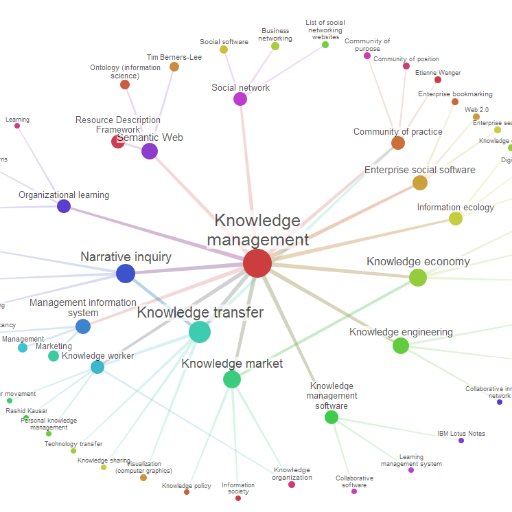#imfblog risultati di ricerca
RT @IMFNews The collapse of crypto exchange FTX is prompting calls for greater regulation of the crypto industry. Here’s what countries in sub-Saharan Africa are doing. bit.ly/3UZPQQ6 #IMFBlog

RT @IMFNews From Brexit and US-China trade tensions to the pandemic and war, successive shocks have kept uncertainty high. See our latest chart of the week blog for a new way to track the trends. bit.ly/3RbsLJ7 #IMFBlog

RT @IMFNews The dollar is now at its strongest since the early 2000s. Chief Economist @pogourinchas’ latest #IMFBlog explains why that matters. bit.ly/3yto7OQ #WEO
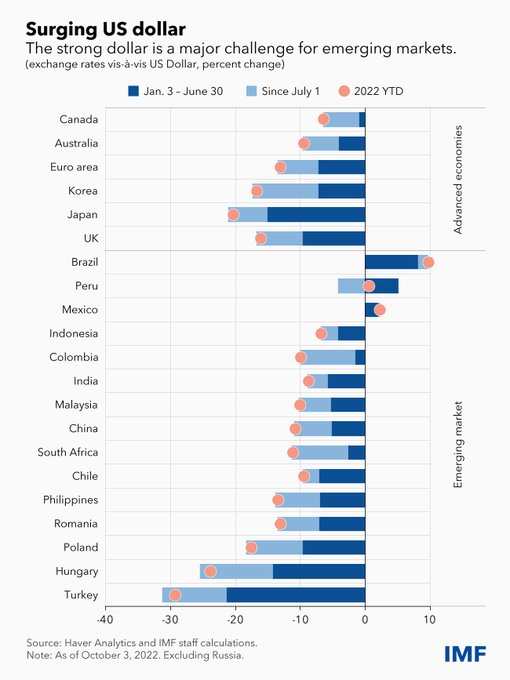
RT @IMFNews A sharp rise in interest rates could put commercial real estate prices under more pressure, especially in countries with weak prospects for economic growth. See #IMFBlog for more. bit.ly/3R5RxJg

RT @IMFNews The threat of inflation leading to faster wage growth, and even more rapid inflation, appears to be limited—so far. See our new #IMFBlog for what the latest IMF research says about the risks. bit.ly/3e5F2jw

RT @IMFNews The collapse of crypto exchange FTX is prompting calls for greater regulation of the crypto industry. Here’s what countries in sub-Saharan Africa are doing. bit.ly/3UZPQQ6 #IMFBlog
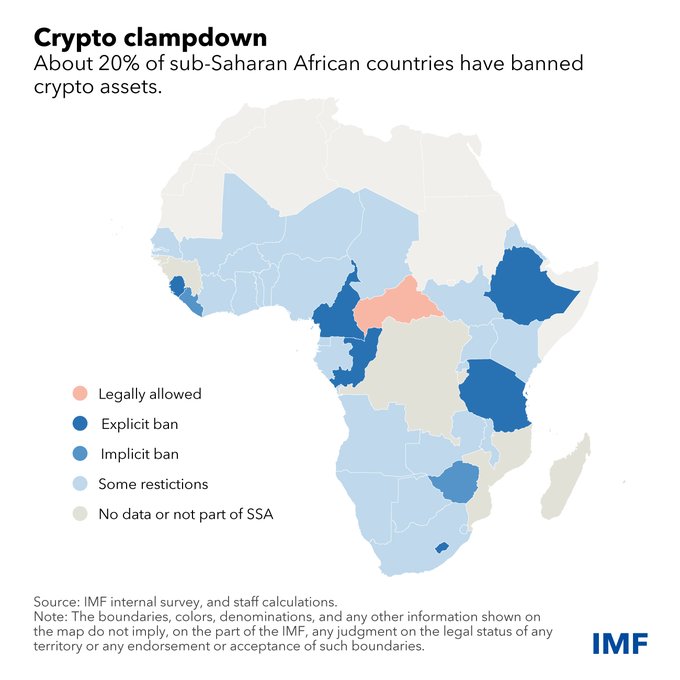
RT @IMFNews From Brexit and US-China trade tensions to the pandemic and war, successive shocks have kept uncertainty high. See our latest chart of the week blog for a new way to track the trends. bit.ly/3RbsLJ7 #IMFBlog

RT @IMFNews The collapse of crypto exchange FTX is prompting calls for greater regulation of the crypto industry. Here’s what countries in sub-Saharan Africa are doing. bit.ly/3UZPQQ6 #IMFBlog

RT @IMFNews The dollar is now at its strongest since the early 2000s. Chief Economist @pogourinchas’ latest #IMFBlog explains why that matters. bit.ly/3yto7OQ #WEO

RT @IMFNews Pacific island countries have untapped tax potential, and raising more revenue could help pay for vital climate and social-development spending. See our latest blog for more. bit.ly/3yUmjOU #IMFBlog
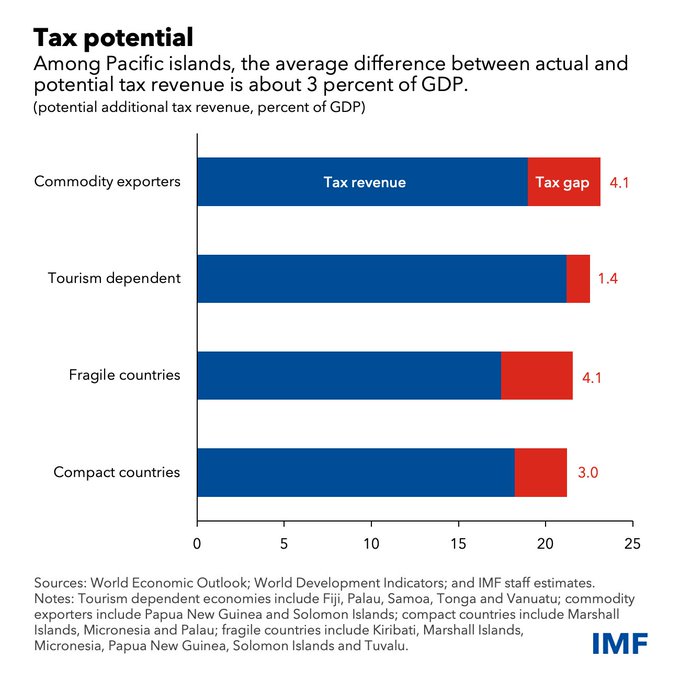
RT @IMFNews Pacific island countries have untapped tax potential, and raising more revenue could help pay for vital climate and social-development spending. See our latest blog for more. bit.ly/3yUmjOU #IMFBlog
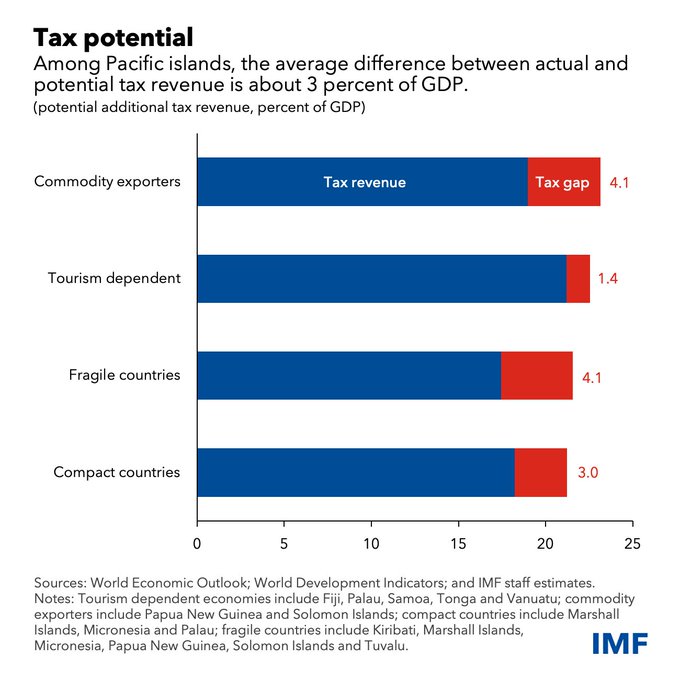
RT @IMFNews Asia’s stock markets are moving more in sync with crypto prices, highlighting the need for regulators to better safeguard financial stability. See our latest #IMFBlog for more. bit.ly/3Adoqgz
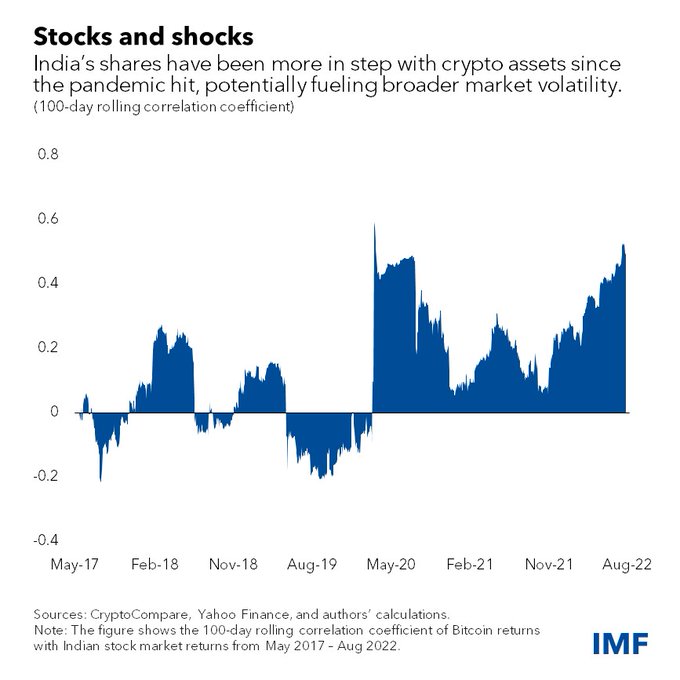
RT @IMFNews Informal employment has rebounded much more than formal work in G20 emerging economies including Brazil, Indonesia, Mexico, and South Africa since the depths of the pandemic. See #IMFBlog for more on how labor markets are changi ..
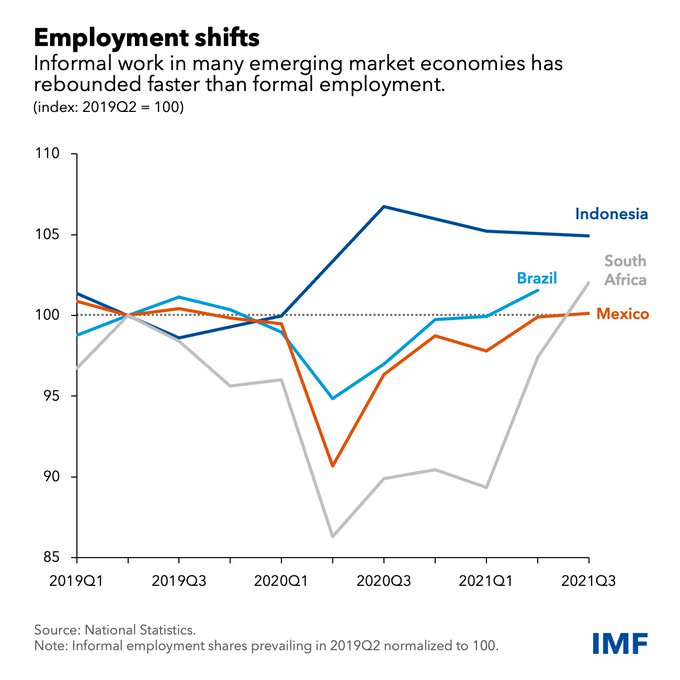
RT @IMFNews Inflation often comes down to how people expect prices to rise in the future. We find that the more backward-looking people’s expectations are, the higher interest rates have to rise. #IMFBlog bit.ly/3e5F2jw
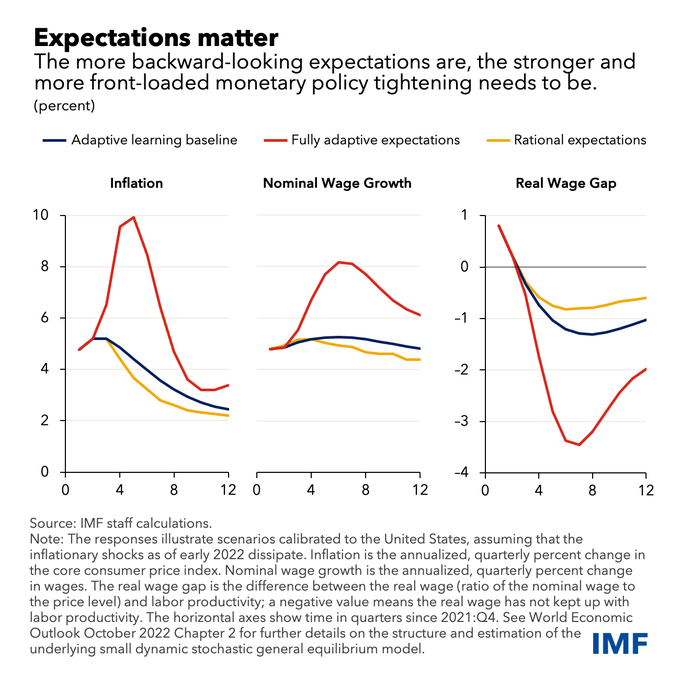
RT @IMFNews Extreme weather could push surging food prices even higher. Here’s how sub-Saharan Africa, the world’s most food insecure region, can adapt. bit.ly/3BIQMkJ #IMFBlog
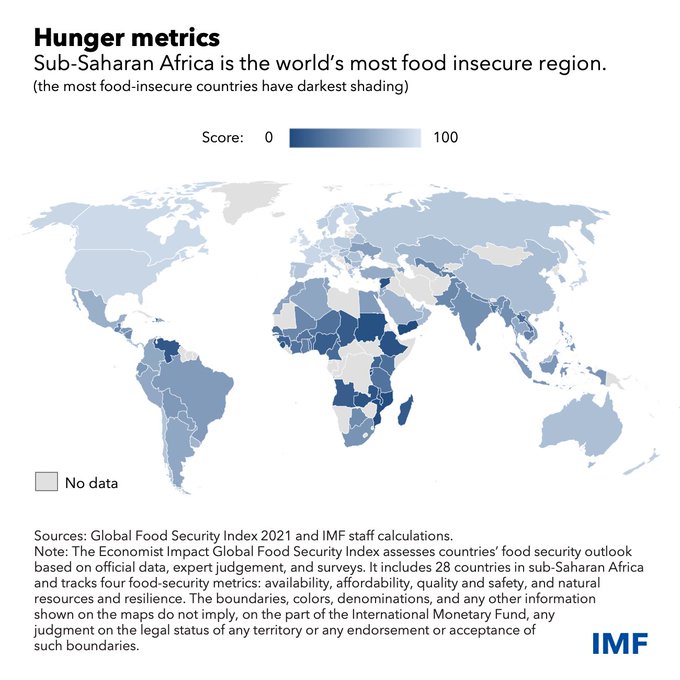
RT @IMFNews Global current account balances—the overall size of deficits and surpluses across countries—are widening for a second straight year, according to our latest External Sector Report. #ESR #IMFBlog bit.ly/3zW5Bzu
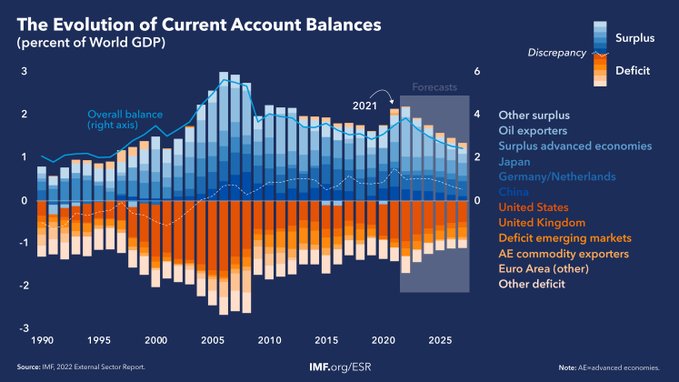
RT @IMFNews A picture is worth a thousand words. See #IMFBlog for our recent Chart of the Week posts that visualize what’s happening in the global economy. bit.ly/3wDjpgw
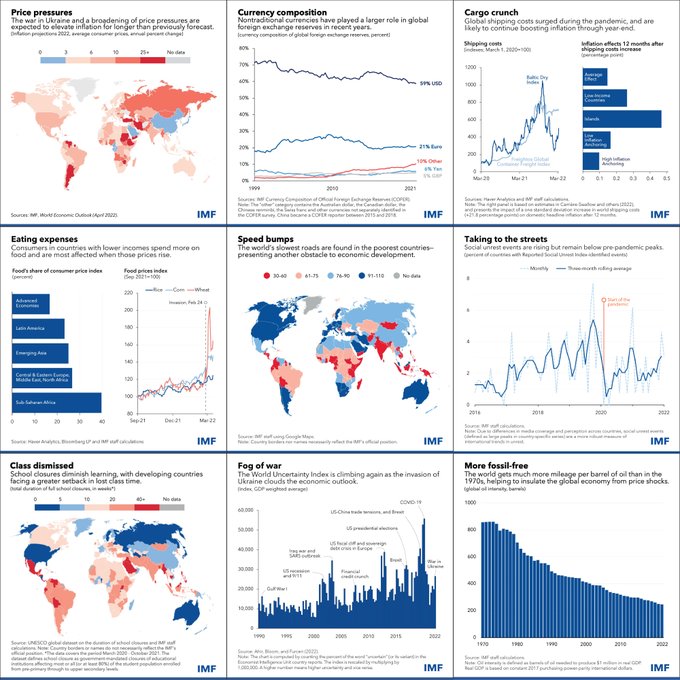
RT @IMFNews This could be another challenging year for the global economy, but it could be a turning point—with inflation moderating and growth accelerating. We project 2.9% growth this year. bit.ly/3YToQ6P #IMFBlog
RT @IMFNews This could be another challenging year for the global economy, but it could be a turning point—with inflation moderating and growth accelerating. We project 2.9% growth this year. bit.ly/3YToQ6P #IMFBlog
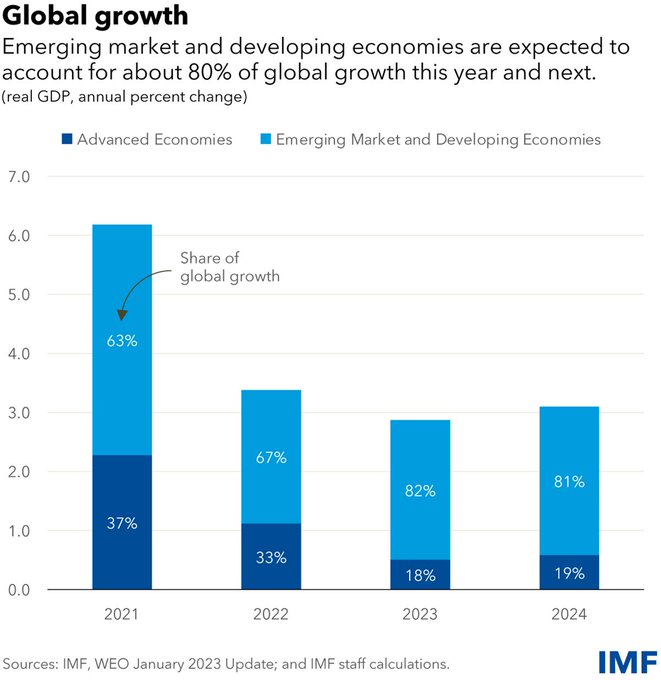
RT @IMFNews Our new survey of global attitudes about fighting climate change shows that effective communication and building awareness of the best policy options matter most. Learn more here on #IMFBlog: bit.ly/3x9303d
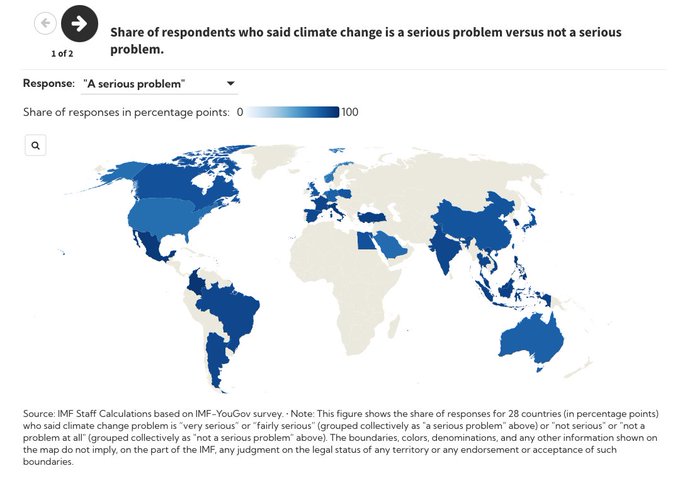
RT @IMFNews Inflation often comes down to how people expect prices to rise in the future. We find that the more backward-looking people’s expectations are, the higher interest rates have to rise. #IMFBlog bit.ly/3e5F2jw
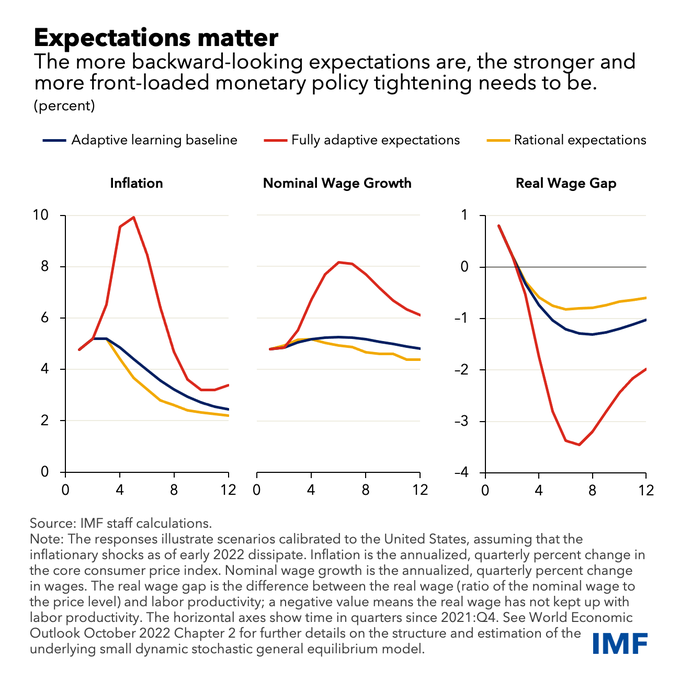
RT @IMFNews Climate policies and finance are complementary because better policies attract private investment, which in turn helps meet policy objectives in emerging and developing economies. Check out our #IMFBlog for more details: bit ..
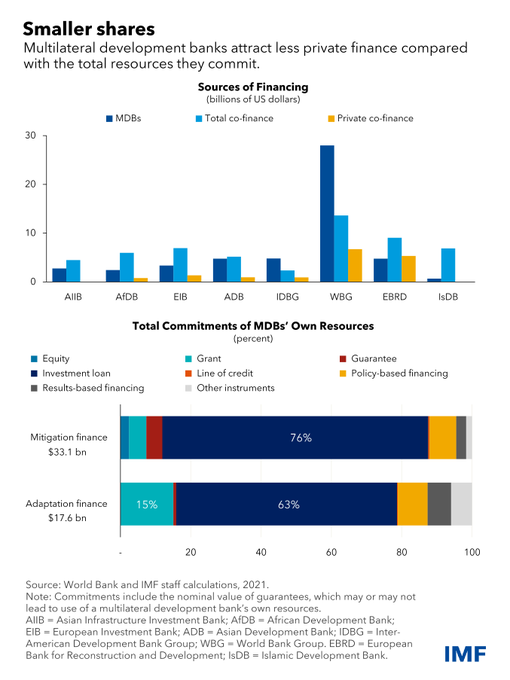
RT @IMFNews The IMF’s Climate Change Indicators Dashboard provides the breakdown on global greenhouse emission trends. See #IMFBlog for more. bit.ly/3a5utuF
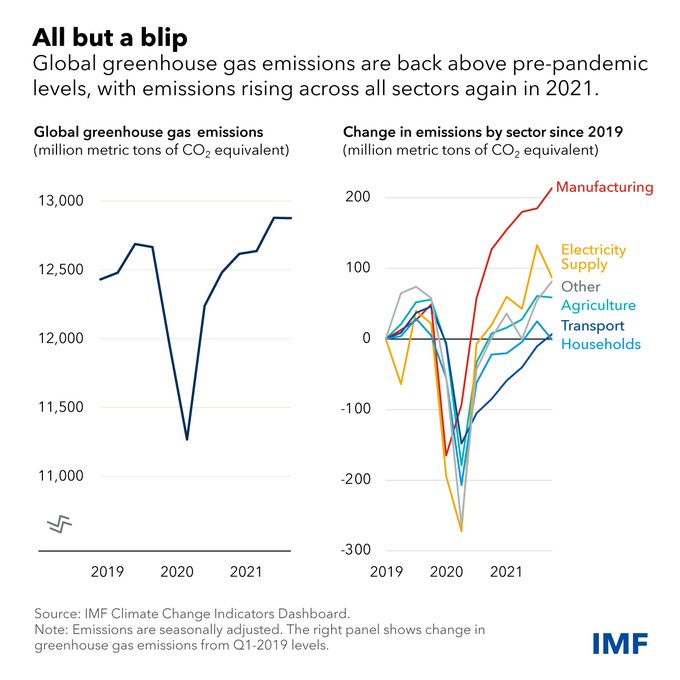
RT @IMFNews A sharp rise in interest rates could put commercial real estate prices under more pressure, especially in countries with weak prospects for economic growth. See #IMFBlog for more. bit.ly/3R5RxJg

RT @IMFNews How could a Russian natural gas cutoff weigh on Europe’s economies? #IMFBlog rounds up three new staff research papers examining this question: bit.ly/3yPEpRh

RT @IMFNews In the United Kingdom, living costs for the poorest 20% of households are set to rise by about twice as much as those for the wealthiest because of higher energy bills. Read #IMFBlog. bit.ly/3SoC09m
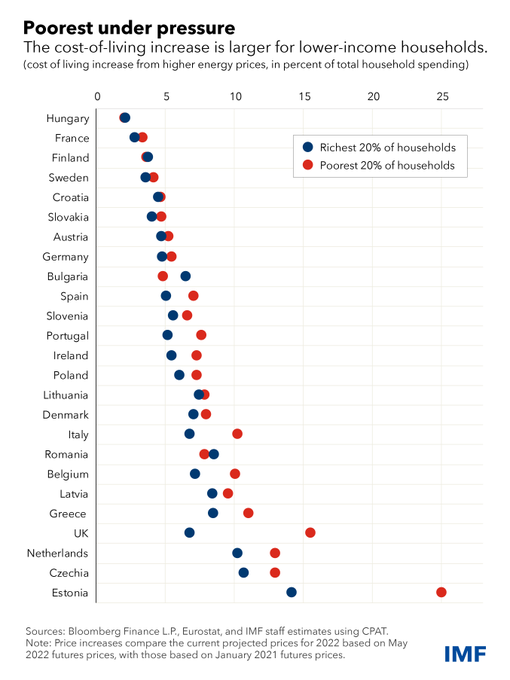
RT @IMFNews In the United Kingdom, living costs for the poorest 20% of households are set to rise by about twice as much as those for the wealthiest because of higher energy bills. Read #IMFBlog. bit.ly/3SoC09m
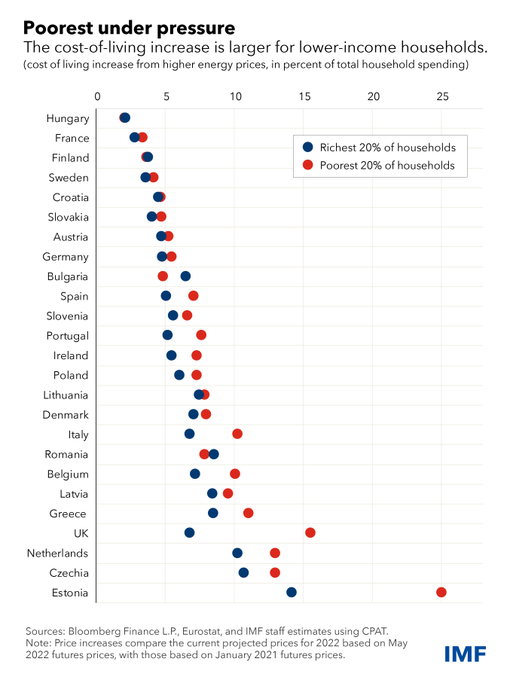
RT @IMFNews A picture is worth a thousand words. See #IMFBlog for our recent Chart of the Week posts that visualize what’s happening in the global economy. bit.ly/3wDjpgw
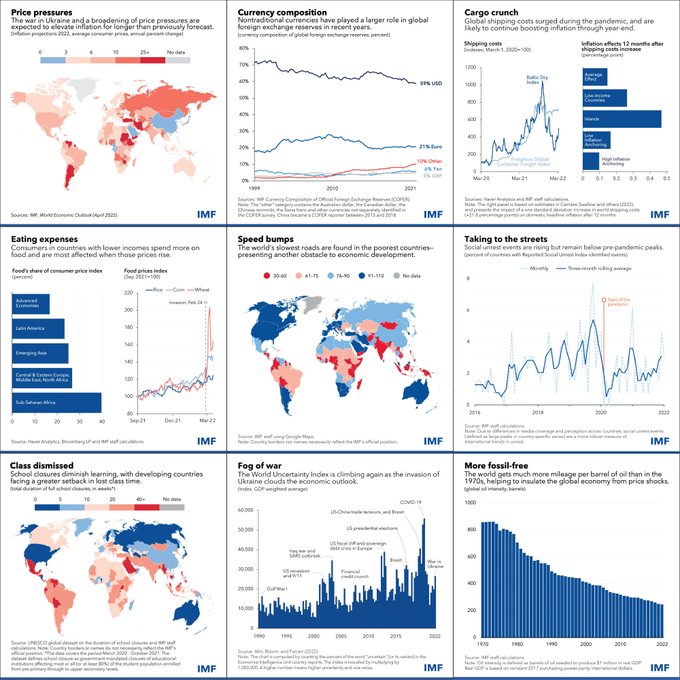
RT @IMFNews Climate policies and finance are complementary because better policies attract private investment, which in turn helps meet policy objectives in emerging and developing economies. Check out our #IMFBlog for more details: bit ..
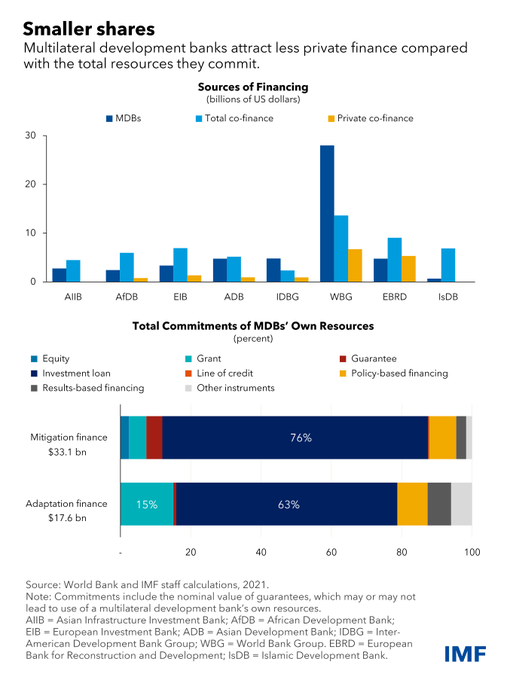
RT @IMFNews Staple food prices in sub-Saharan Africa surged by an average 23.9% in 2020-22—the most since the 2008 global financial crisis. Our #IMFBlog looks at the drivers of food prices. bit.ly/3EKEpqh
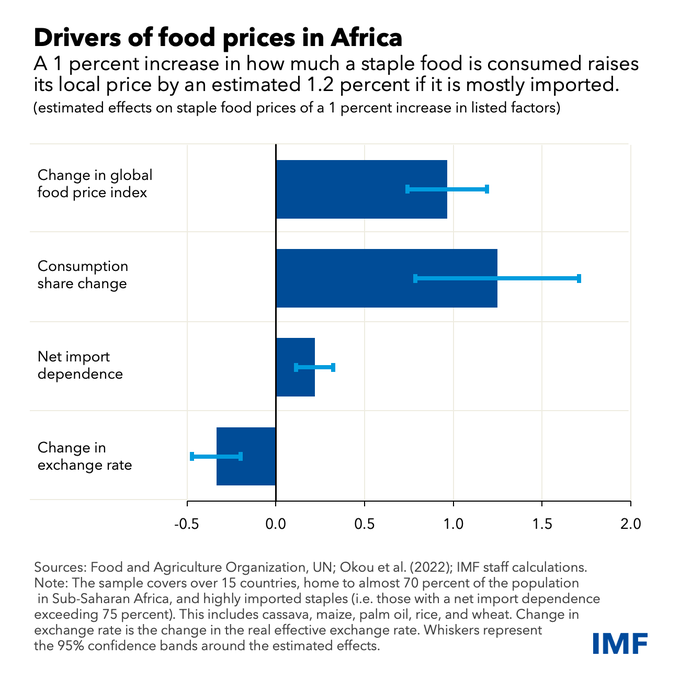
RT @IMFNews Asia’s stock markets are moving more in sync with crypto prices, highlighting the need for regulators to better safeguard financial stability. See our latest #IMFBlog for more. bit.ly/3Adoqgz
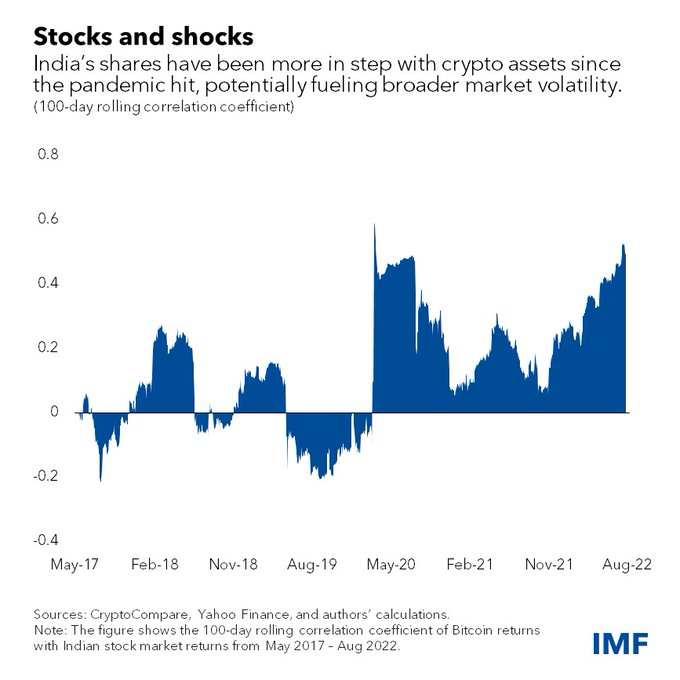
RT @IMFNews The public sector must play a major role in boosting private climate finance, and risks shared by both sides would help direct a greater part of the world’s financial assets to climate projects. bit.ly/3c22xZH #IMFBlog
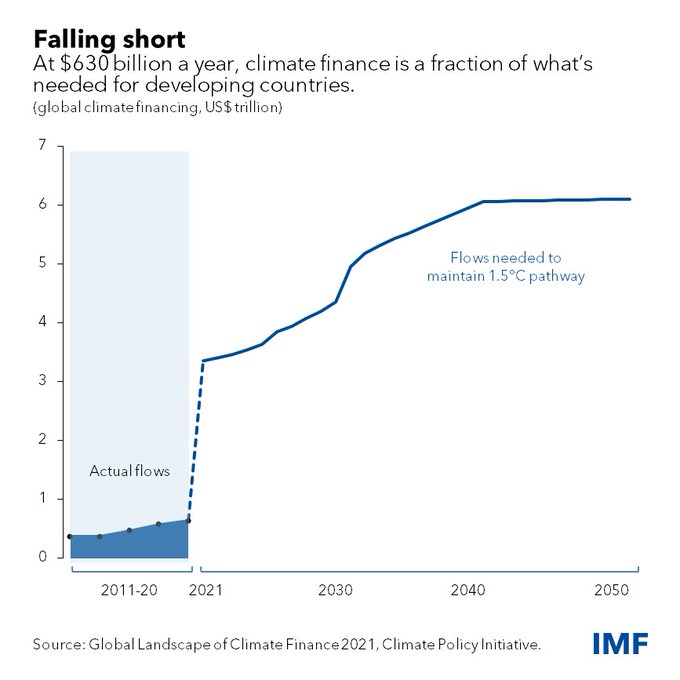
RT @IMFNews The longer we wait, the worse the trade-off. That’s the conclusion of our latest research on the economic costs of delaying the world’s transition to low carbon emissions. #IMFBlog bit.ly/3CyJh07
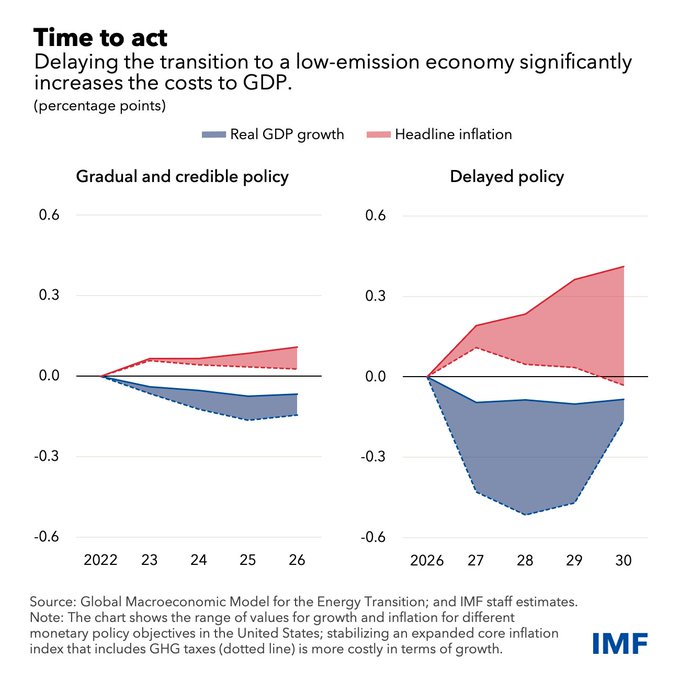
RT @IMFNews Global debt fell by 10 percentage points in 2021 to 247% of GDP. Find out why in our new #IMFBlog ➡️bit.ly/3iWT0pS

RT @IMFNews Where are the world’s fastest roads? A new IMF measure of road quality across 162 countries uses data from Google Maps. Read the #IMFBlog. bit.ly/3NUjVgw
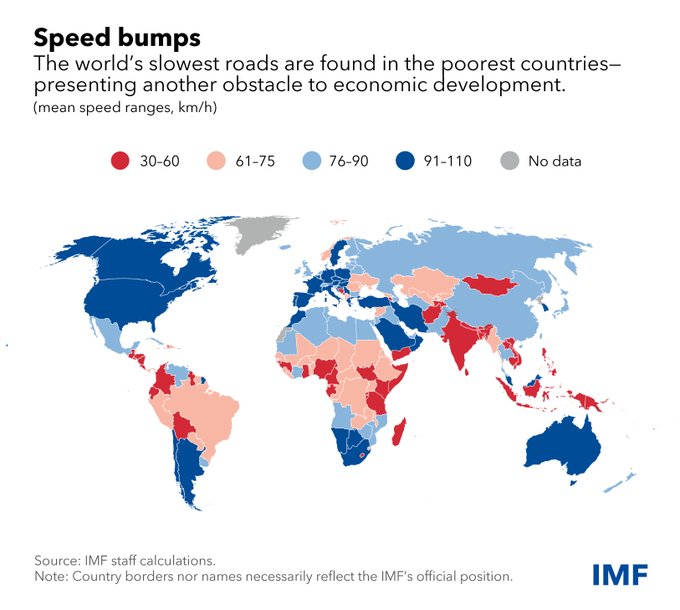
RT @IMFNews A picture is worth a thousand words. See #IMFBlog for our recent Chart of the Week posts that visualize what’s happening in the global economy. bit.ly/3wDjpgw
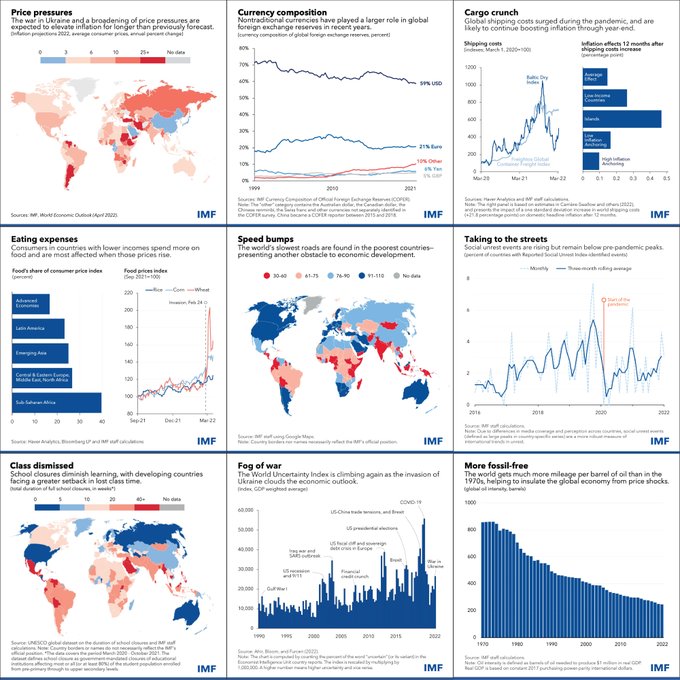
RT @IMFNews A Russian natural gas cutoff could hit Central and Eastern Europe countries hardest, with a risk of economic contractions of up to 6%. See #IMFBlog for more. bit.ly/3yPEpRh
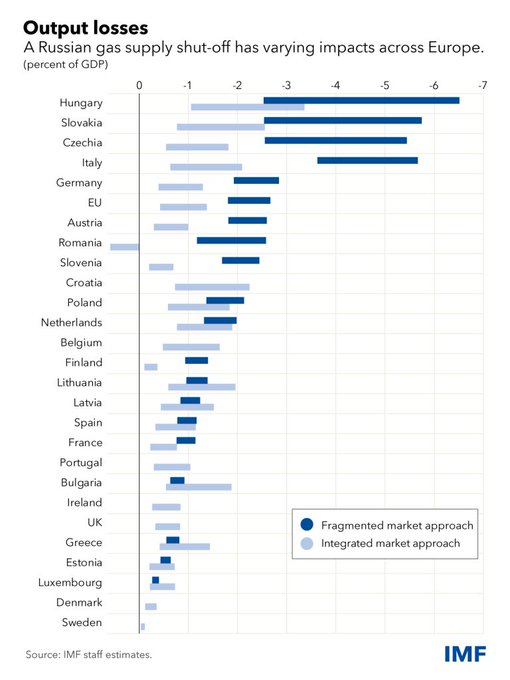
RT @IMFNews Pacific island countries have untapped tax potential, and raising more revenue could help pay for vital climate and social-development spending. See our latest blog for more. bit.ly/3yUmjOU #IMFBlog
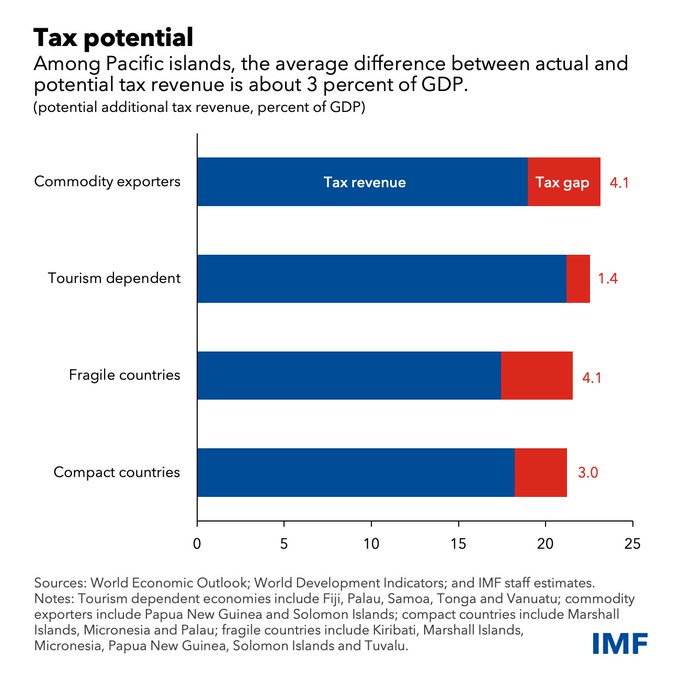
RT @IMFNews Climate policies and finance are complementary because better policies attract private investment, which in turn helps meet policy objectives in emerging and developing economies. Check out our #IMFBlog for more details: bit ..
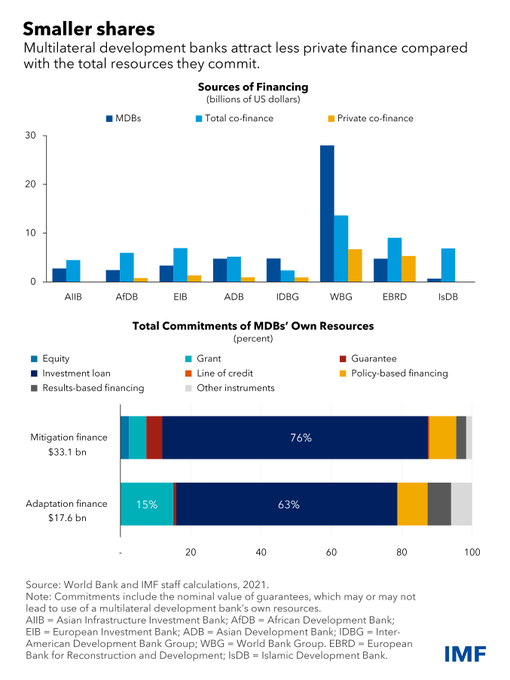
RT @IMFNews Latin America's economy expanded by nearly 4% in 2022, employment recovered strongly, and the service sector rebounded from the damage caused by the pandemic. More on #IMFBlog: bit.ly/3jv1ncG
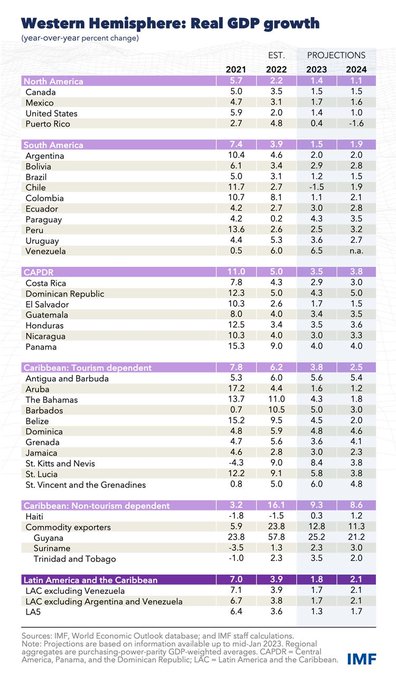
RT @IMFNews A mix of policies to mitigate climate change—carbon taxes, green subsidies, and infrastructure investment—could reduce global current account balances by a quarter by 2027. Read more here. #IMFBlog. bit.ly/3SRg8DD58
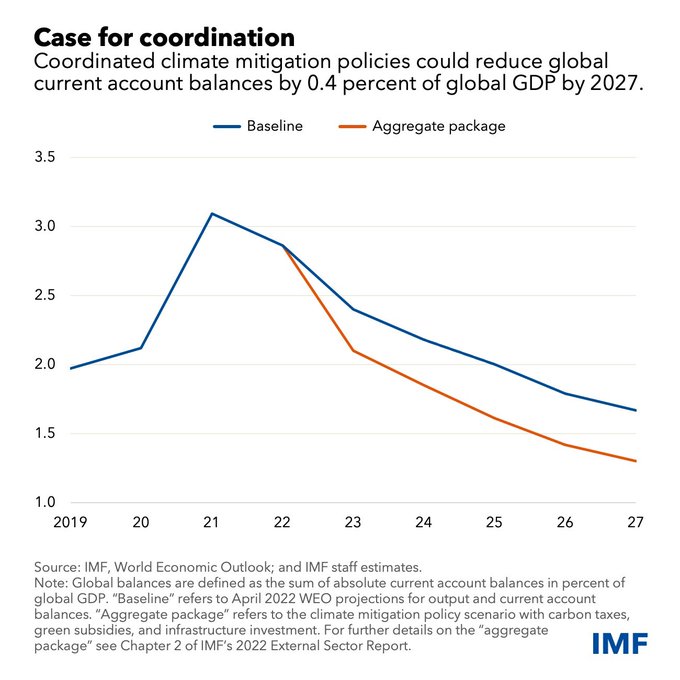
RT @IMFNews Global headline inflation is expected to decline this year but will still be above pre-pandemic levels in more than 80% of countries next year. For more on the global outlook, read @POGourinchas’ latest #WEO #IMFBlog: bit.ly/3Rd ..

RT @IMFNews A picture is worth a thousand words. See #IMFBlog for our recent Chart of the Week posts that visualize what’s happening in the global economy. bit.ly/3wDjpgw
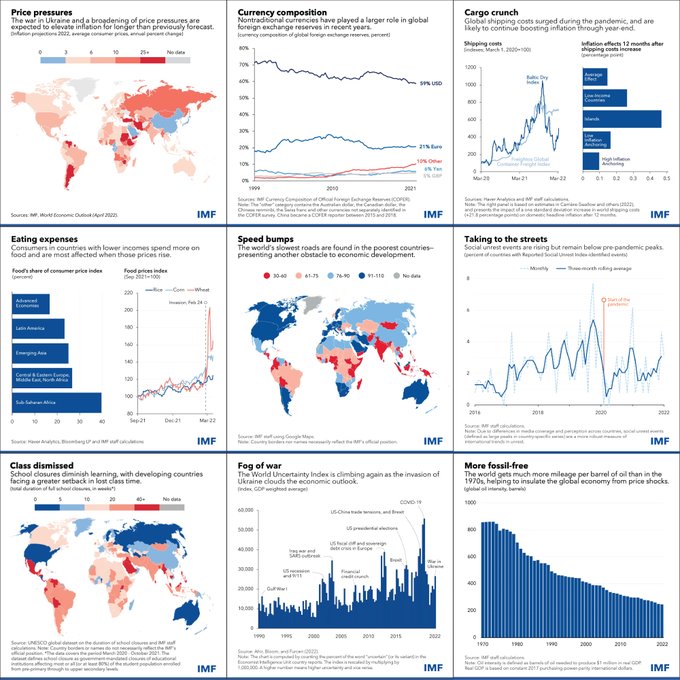
Something went wrong.
Something went wrong.
United States Trends
- 1. Dodgers 499K posts
- 2. #WorldSeries 260K posts
- 3. Yamamoto 120K posts
- 4. Blue Jays 127K posts
- 5. Will Smith 37.8K posts
- 6. Rojas 50.7K posts
- 7. BACK TO BACK 901K posts
- 8. Kershaw 12.1K posts
- 9. Vlad 12.8K posts
- 10. Dave Roberts 9,703 posts
- 11. Ohtani 72.6K posts
- 12. Baseball 139K posts
- 13. #Worlds2025 26.8K posts
- 14. Jeff Hoffman 3,042 posts
- 15. Auburn 13.5K posts
- 16. Ernie Clement 11.6K posts
- 17. Nike 7,181 posts
- 18. Miggy 8,015 posts
- 19. Cubs 7,020 posts
- 20. Andy Pages 3,737 posts

















